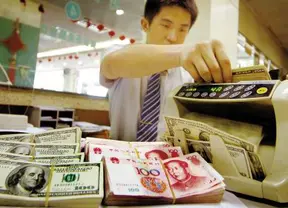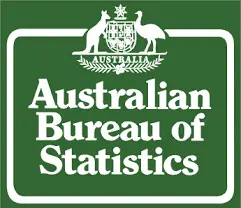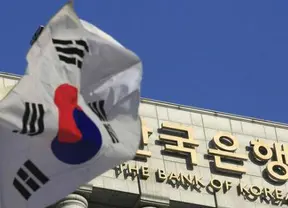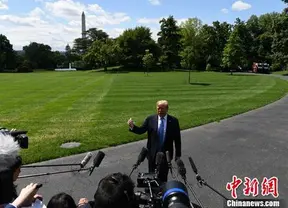
Current fluctuations of the renminbi (RMB) exchange rate should not be seen as a sign of devaluation, China's foreign exchange regulator said Thursday.

Australia's unemployment rate has dropped to an almost two-year low, according to new data released by the Australian Bureau of Statistics on Thursday.

South Korea's central bank on Thursday froze the benchmark interest rate at a record low of 1.5 percent, keeping a wait-and-see stance for six straight months.

Bank of Korea (BOK), South Korea's central bank, froze interest rates at a record low on Thursday, keeping a wait-and-see stance for five months on signs of economic recovery.

China's central bank removed the deposit rate ceiling when it announced cuts to both interest rates and bank reserves on Friday, as it presses ahead with financial reforms amid a slowing economy.

China's central bank on Friday cut interest rates and lowered the reserve requirement ratio (RRR) to promote growth and interest rate liberalization.

South Korea should respond to the expected interest rate hike in the United States by devaluing its currency rather than cutting its policy rate further, a South Korean economic expert said Monday.

The U.S. Federal Reserve's decision to leave its zero interest-rate policy unchanged has given emerging economies, including China, some breathing room, but the Fed must stay cautious of the havoc a future rate hike could cause.

The U.S. Federal Reserve on Thursday kept its benchmark interest rate unchanged, saying the rising uncertainty abroad and low inflation were the key reasons behind the decision.

The Latin American markets have been unsettled lately as the U.S. Federal Reserve (Fed) has failed to provide a clear signal on the specific date of its interest rate rises.

South Korea's central bank on Friday froze its policy rate at a record low for the third consecutive month, but expectations emerged for further cuts due to the fastest fall in exports, which account for about half of the export-driven economy.

To raise or not to raise? That is a question for the U.S. Federal Reserve to ponder, but the uncertainty over a potential increase in interest rates has had negative spillover effects in the market.

Chinese currency has been stable against the U.S. dollar for a week, suggesting the market has calmed down after last week's jolting depreciation.

U.S. stocks wavered in a tight range in the morning session Tuesday, as investors were meditating on a sharp sell-off in Chinese stock market amid upbeat data.

China's recent move to adjust its central parity system is a step toward a market-oriented exchange rate, former Federal Reserve Chairman Ben Bernanke said Monday.

China's recent move to adjust its central parity system is a step toward a market-oriented exchange rate, former Federal Reserve Chairman Ben Bernanke said Monday.

Chinese currency the yuan halted a three-day slide after the central bank soothed market sentiments on Thursday, reversing short but sharp declines triggered by a foreign exchange (forex) policy change.